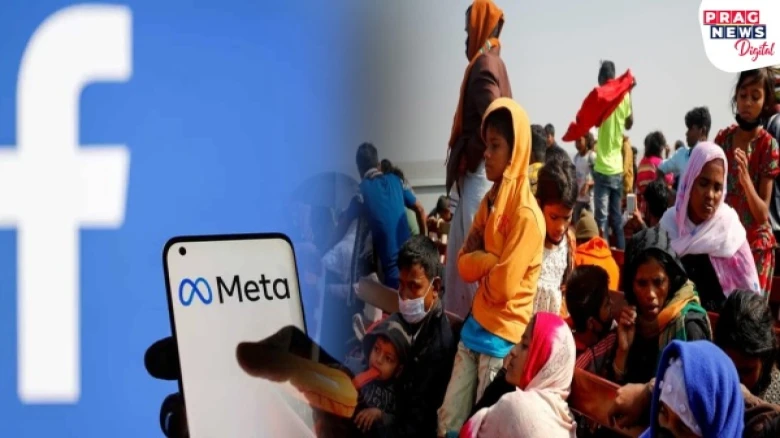Amnesty International has accused Facebook and its owner Meta of serious wrongdoing against Myanmar refugees.
Digital Desk: The social media platform Facebook is under increasing pressure to compensate Rohingya refugees in Bangladesh.
Amnesty International has indicted Facebook and its owner Meta of serious misbehaviour concerning Myanmar refugees.
Amnesty International stated in a report released last week that Meta's programming "proactively amplified and promoted content" that incited violent hatred against the Rohingya. According to the report, the content first appeared on Facebook in 2012.
According to the investigators, the company failed to remove violent and false posts and instead spread them. According to Amnesty International, Meta's actions resulted in the 2017 killings of Rohingya Muslims in Myanmar.
At the same time, Facebook's popularity in Myanmar was growing. It was many people's only connection to the online world there. As a result, Facebook became the primary internet connection for a large portion of Myanmar's population.
In 2017, over 700,000 Rohingya fled to neighbouring Bangladesh. The Tatmadaw, Myanmar's security forces, have been accused of killings, rapes, and other forms of torture, as well as the burning of Rohingya villages.
According to the Amnesty International report, Meta did not respond; however, in a statement, the company stated that it "stands in solidarity with the international community and supports efforts to hold the Tatmadaw accountable for its crimes against the Rohingya people."
Rafael Frankel is Meta Asia-director Pacific's public policy for emerging markets. "Our safety and integrity work in Myanmar remains guided by feedback from local civil society organisations and international institutions, including the United Nations Fact-Finding Mission on Myanmar; the Human Rights Impact Assessment we commissioned in 2018; and our ongoing human rights risk management," he said in a statement.
Emerging risk facets for speaking on human rights:
Approximately one million Rohingya people remain in camps. The majority are in Bangladesh. They are demanding that Meta pay reparations for its role in Myanmar's violent repression of Rohingya Muslims. The United States declared that situation to be genocide earlier this year.
The Amnesty International findings are based on information provided by Rohingya refugees, former Meta employees, experts, activists, and others. Investigators also used documents provided to Congress by whistleblower Frances Haugen, a former Facebook data scientist, last year.
According to the report, digital rights activists believe Meta has improved its oversight in Myanmar in recent years. Meta barred the Myanmar military from its site in January 2021, following a violent government overthrow.
However, some critics, including some Facebook employees, argue that the current methods will never be truly effective.
"Really dangerous to our human rights," says Pat de Brún, an Amnesty lawyer and researcher on artificial intelligence and human rights.
He went on to say that what happened to the Rohingya and Facebook's role in the conflict "risks happening again, in many different contexts around the world."
"The company has demonstrated a complete unwillingness or inability to address the root causes of its human rights impact," de Brún said.
Following a United Nations report in 2018 that condemned Meta's actions in Myanmar, the company admitted that it was not doing enough to help prevent incitement of violence. Over the next few years, it changed some policies and the way it supervised the site, and it claimed great success.
However, according to the Amnesty International report, the new measures are insufficient.
The Rohingya refugees have not specified how reparations should be made. Meta is also the subject of two legal actions in the United States and the United Kingdom seeking $150 billion in aid for Rohingya refugees.
"We believe that the genocide against the Rohingya was only possible because of Facebook," one refugee stated in the report. "They communicated with one another to spread hatred, and they organised campaigns on Facebook." But Facebook remained silent."
Meta has refused to consider making amends.

Leave A Comment